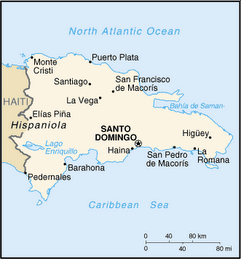"We've been forgotten", "We don't know where the international aid is that everyone talks about", "People are suffering, baking in their frayed tents", "Where is the reconstruction?" "Haitians complain of little or no food, a lack of local government leadership and no escape from the tent cities".
These are just a few of the comments occurring more and more frequently in the Haitian news. People are becoming desperate as their situation fails to improve. Following are a few excerpts from local newspapers describing the current situation six months after the tragedy.
President Preval announces Nov. 28 as voting day to choose new president. But organizing elections will not be an easy task. The electoral councils headquarters were destroyed and records lost in the quake. Millions of voters were either killed, made homeless or displaced.
Haiti's constitution does not permit Preval to run again. Haitians propose
Aristide as a possible candidate for upcoming elections. (Haiti News)
Hospital Closing
In the days after the Jan. 12 earthquake, doctors flocked to Haiti to volunteer in the country's private premier hospital. Six months later, the hospital is closed. Not accustomed to providing free care and missing deadlines for getting international aid, the hospital shut down in April.
Promises of support from military organizations and more importantly, money, never materialized. Money promised by charities never came through. The hospital's administrators, in an oversight, were late meeting deadlines for other forms of assistance.
The hospital had to close when its owners could no longer afford the 400 gallons of diesel needed every day to fuel generators or for the salaries for the staff of 170 caregivers who kept working despite damage to their own homes. (Haiti Net)
There are warehouses filled with food, goods and medical supplies already in Haiti. A lot of it arrived in Jan. right after the earthquake, but because of the lack of coordination between the relief organizations and the government, it is just sitting there. That blunder is costing lives. (Haiti Star)
Reconstruction
In the immediate aftermath of the quake, 1,340 tented villages and squalid camps sprung up, and are acquiring an ominous air of permanence. The inhabitants stay because their homes no longer exist or because their landlords have used the housing shortage to drive up rents.
Why isn't rebuilding taking place? Lack of money, incompetent governance and the sheer quantity of the rubble are all factors. About 60% of the emergency relief that was promised was delivered. But only a small fraction of the $5.3 billion that was pledged for reconstruction has materialized and much is in the form of forgiven debts - not cash. Some workers say the biggest barrier to reconstruction is government ineptitude and bureaucracy. It takes months for an aid organization to register with the state. Until then, they must pay a 30% tax on goods brought into the country.
What about the rubble? Only 5% has been removed since Jan. If trucks worked at it every day, it would take 3 yrs. to remove it all. Al the current rate, it will take an estimated 20 yrs. or more.
Land tenure causes further complications, it's hard to know who owns what. Many of those living in tents did not own their homes - they were renting. But even those who did own property are unlikely to have proof. Only 5% of Haiti's land is accounted for in public records - and the building that housed title deeds was flattened in the earthquake. There is no proper land-registry system. Land titles pass informally from one generation to the next, largely because titling costs several thousand dollars and public officials are generally held to be corrupt. (Money Week)
Preval announced that the six month emergency phase has ended and reconstruction has begun. The distinction was not lost on some Haitians.
The most visible early emergency programs such as massive food distributions have stopped. Tarp and tent building are growing instead of shrinking - 665,700 plastic tarps and 97,000 tents were handed out, but most are now falling apart. The number of people in relief camps has nearly doubled to 1.6 million.
When building materials finally get through customs, there is nowhere to put them. Fights over land rights, customs delays and slow coordination between aid groups and government have hampered nearly everything.
Donors have met 10% of a promised $5.3b promised for reconstruction - separate from the humanitarian aid, mostly by forgiving debts, not providing cash. (Taipei Times)






No comments:
Post a Comment